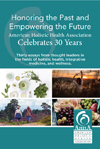Search Results
The food you eat talks to your genes – Issue
 If there’s one thing the last several decades of nutrition research have proven, it’s that there’s no such thing as a one-size-fits-all diet. We have to face the fact that the traditional dietary recommendations do not optimally suit everyone. This may explain the ongoing lack of consensus as to what constitutes a “healthy diet.” While many aspects of nutrition are at play here, one emerging reason certain eating plans work for one person but not another may have to do with individual genetics. Known as nutrigenomics, the scientific study of the interaction of nutrition and genes, especially with regard to the prevention or treatment of disease, is a developing tool that would certainly increase what a healthcare professional has to work with beyond just a simple health history and some lab tests.
If there’s one thing the last several decades of nutrition research have proven, it’s that there’s no such thing as a one-size-fits-all diet. We have to face the fact that the traditional dietary recommendations do not optimally suit everyone. This may explain the ongoing lack of consensus as to what constitutes a “healthy diet.” While many aspects of nutrition are at play here, one emerging reason certain eating plans work for one person but not another may have to do with individual genetics. Known as nutrigenomics, the scientific study of the interaction of nutrition and genes, especially with regard to the prevention or treatment of disease, is a developing tool that would certainly increase what a healthcare professional has to work with beyond just a simple health history and some lab tests.
A nutrigenomic approach also invites us to re-evaluate our view of the role of the food we eat. Rather than just thinking of the food we eat as calories, energy, and sustenance, what if we considered the latest evidence that suggests that food also “talks” to our genome, which is the genetic blueprint that directs the way our body functions down to the cellular level? What if we could use this communication between food and genes to positively affect our health, physiology, and longevity?
While stepping back and looking at the whole situation and anticipating that both genes and diet can influence our overall health to some degree, it is also important for us to keep in mind the role that our environment plays in determining whether we might develop a condition. A whole person approach to our health is expanding.
While you are educating yourself about nutrigenomics, you may discover that uncovering the emerging strengths and weaknesses of incorporating genes into your lifestyle nutritional planning takes some digging and patience. Increasing your awareness of what is involved is a positive start. Considering potential benefits to current health conditions you are dealing with may be a strong incentive for you to continue.
Issue: How aware are you of how your food choices triggering your genes could impact the quality of your health?
AHHA strives to maintain a neutral position on issues and views knowledge as power. For those interested in this month’s issue, below we provide you with a variety of articles to start your research as to whether or not this might become important for you and your physician to become knowledgeable about.
Nutrigenomics Might Be the Future of How You Eat (3/16/21)
by Sarah Garone
Healthline
Nutrigenomics: Can what you eat reprogram your genes? (4/14/22)
by Monica Dus
Genetic Literacy Project
Nutrigenomics – Understanding How Genes Affect Nutrient Tolerance (4/20/22)
by Carmen Leitch
Labroots
Nutritional Genomics (Nutrigenomics) – Why Does It Matter? (2/22/22)
FingerLakes.com
“Right diet for the right person”: a focus group study of nutritionist-dietitians’ perspectives on nutritional genomics and gene-based nutrition advice (10/27/21)
by Jacus S Nacis, et al.
National Center for Biotechnology Information
Small genetic differences can affect the ability to utilize energy of various nutrients, study finds (4/19/22)
News Medical Life Sciences
Food Changes Your Genetics (4/19/22)
Alliance for Natural Health USA
Nutrigenomics: How to Eat Better for Your Genes (8/13/19)
by Mascha Davis, MPH, RDN
Openfit
Personalised nutrition approach to Malaysian health problems (2/28/22)
University of Reading
You are encouraged to go to post your comments.
To review past ISSUES, visit the Special Updates Archives.




















